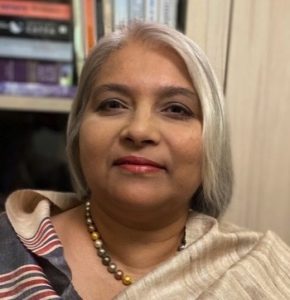 What is the intent of writing? Does writing convey an idea, indulge in linguistic gymnastics or does it just flow spontaneously to colour the Earth with diverse imaginings? I do not quite know. I write because writing is like breathing. I write because I am.
What is the intent of writing? Does writing convey an idea, indulge in linguistic gymnastics or does it just flow spontaneously to colour the Earth with diverse imaginings? I do not quite know. I write because writing is like breathing. I write because I am.
Writing flows like a waterfall gushing into a rivulet. Like water nurtures and supports life, words support visions and ideas to interlink thoughts across a wide spectrum of humanity.
Languages are merely the writer’s medium to paint the universe with ideas, honed to perfection. The role of the translator to capture the essence of these thoughts transposing them into other languages is central to our understanding of the complexity of colours that paint humanity, wherein at the core rests the primal need to survive with love and acceptance.
I have glimpsed this mingling of colours to find affection and inclusivity in pockets across the world – among people who irrespective of their nationality, creed or religion connected with the commonality of experiences, acceptance of diversities and curiosity about our shared past that existed before human constructs grew into insurmountable barriers.
The India of my childhood had prepared me well for overriding such barriers to sense connections. We grew up with the acceptance of heterogeneity of cultures. My friends came from different parts of the country to mingle in a hotpot of religions and colours — the Delhi of the 1970s-1980s. We spoke different languages at home. Hindi and English were languages of interaction outside our homes. However, Hindi with its genders, like French, was always a challenge for me. As I have never empathised with the need to have genders for pens and chairs, such intricacies are best handled by experts. Bengali and English, both, do not attribute genders to objects. Now, I hear, there is a move to do away with ‘him’ or ‘her’ altogether in English— the preferred pronoun is ‘they‘.
Languages evolve as cultures intermingle to create new shades that find acceptance. Rigidity in associating a single language with only one culture makes me uncomfortable. Instances like Michael Madhusudan Dutt’s conversion to write solely in Bengali more than a century ago should be a redundant historical fact in the current global community. Dutt was persuaded by Bethune to give up writing poetry in English as he was told his writings would not find acceptance for the colour of his birth. Bethune’s outlook never sat well with me.
Despite being a Bengali, I have never lived in Bengal. Words come to me mostly in the language of the colonisers. I wrote a poem to explain my dichotomy – “Confused”. I am sharing part of it here.
“I am mixed-up — cannot help
English and Bengali under my belt
But my life is that of the non-English,
A probashi Bengali at best.
People say I am not typical, not quite the right type
A mixed-up Bengali — I said…”
I was delighted when in an interview that is now part of Monalisa No Longer Smiles: An Anthology of Writings from across the World, Arundhathi Subramaniam, stated: “English is my first language, and it is an Indian language. It may be ours due to unfortunate historical circumstances. But it is no longer a foreign import. It is as much ours today as democracy, or cricket, or chai, or the chili, or tamarind, or okra, or the nose ring!” That resonated well with me.
For me, languages are the colours of a rainbow. That is why I feel privileged to be invited to write for a bilingual forum like Saaranga by Afsar Mohammad who writes beautiful thoughts in a language I cannot read, Telugu, but when translated, his poetry touches a chord in my heart. I do not understand the demarcations made by schools of thought, religion or languages. That is why, I feel, a journal with writings in two languages can create a cultural bridge, start a conversation towards tracing commonalities. We all exist because our words sing the same songs of love and healing in a world worn with violence to soar across a borderless sky connecting in quest of utopian dreams of hope that may find fruition in a distant future.
I am because you are.
*
Mitali Chakravarty is a connoisseur of writings from across the world. She writes, translates and edits for peace, love and harmony. In that spirit, she has founded an online forum called borderlessjournal.com. Recently, she curated and edited Monalisa No Longer Smiles: An Anthology of Writings from across the World ( Om Books International, November 2022).

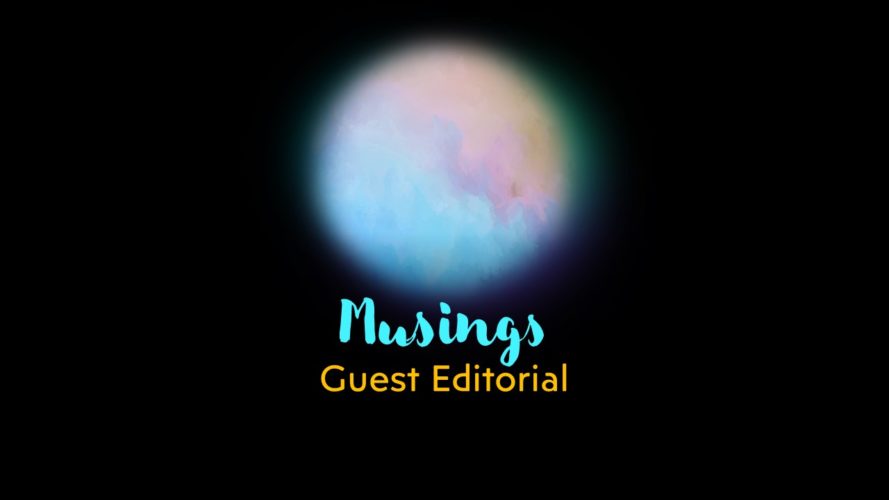


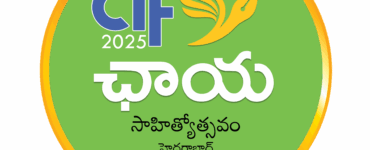
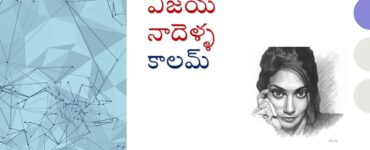
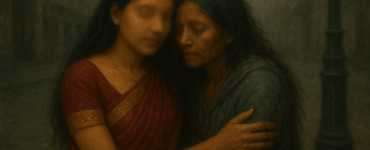


You write so beautifully and eloquently,this article inspires me. I’m so grateful for our friendship. 🙏
Thanks. You are very kind. Your book too inspired me.